Recycling scheme boss felt 'betrayed' by government
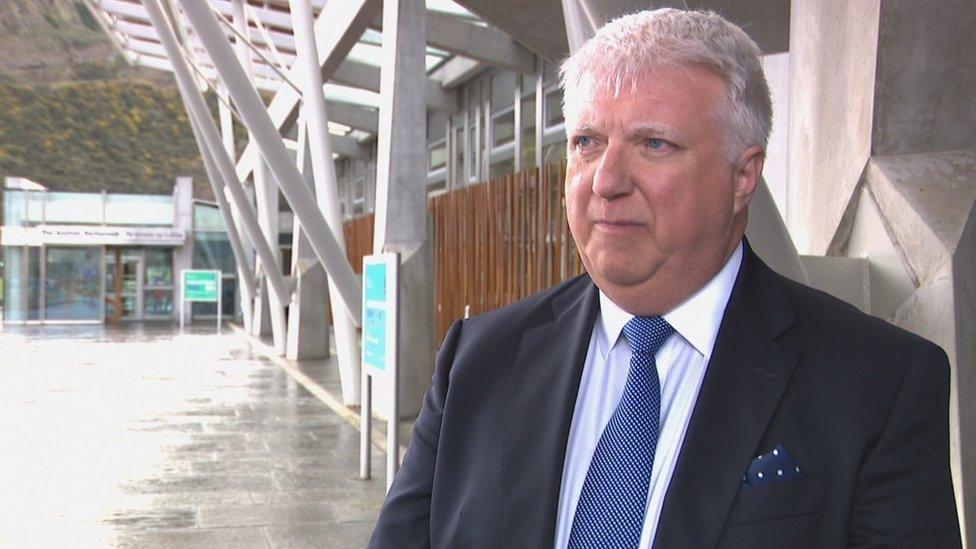
David Harris was chief executive of Circularity Scotland before it went bust
- Published
The boss of the company that would have managed the Scottish government's failed recycling system has said "material facts" were kept from the firm.
Circularity Scotland, which was set up to run the bottle return scheme, went bust when the initiative was put on hold due to a dispute between the Scottish and UK governments.
Its former chief executive, David Harris, gave evidence at the Court of Session as part of a £166m lawsuit brought by Biffa, a waste firm contracted to process recycled bottles and cans.
Mr Harris said he only became aware of potential problems with UK internal market rules following a media inquiry in February 2023.
The Scottish government has always blamed the UK government for the collapse of the scheme, with former minister Lorna Slater accusing then Scottish secretary Alister Jack of an "act of sabotage".
Why is the government being sued for £170m over a recycling scheme?
- Published21 October
Slater gave 'guarantee' on bottle return scheme, court told
- Published21 October
Waste firm given go-ahead to sue government
- Published28 January
But the court was shown a Scottish government paper dating from January 2022 that warned that "core aspects" of the scheme could be "disapplied" by the Internal Markets Act.
Mr Harris said he had not been informed about this by ministers or civil servants, and questioned whether he could have signed a contract with Biffa had he known.
He said: "On the basis of what is being presented to me today, I have to say I feel the material facts were kept from us and that would have had a significant bearing on our ability to proceed."
Mr Harris added that it was "disappointing" and "alarming" he had not been told about the potential problems.
And when asked by Biffa's lawyer Roddy Dunlop KC whether he felt "betrayed", he said: "I am trying not to use emotive language, but I have to say yes."
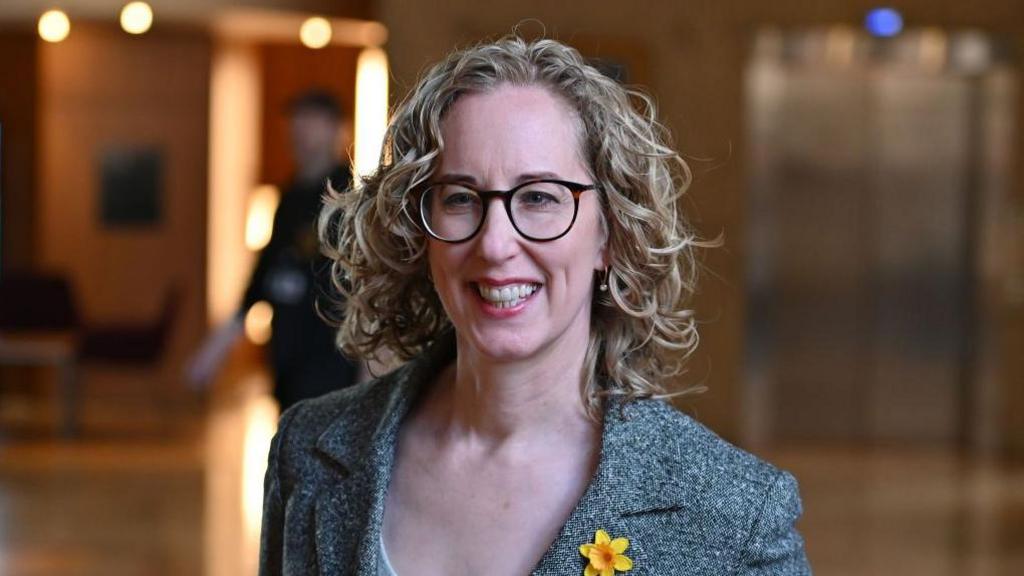
Former minister Lorna Slater said the scheme had been "torpedoed" by an "act of sabotage" by the UK government
Slater, who left government in 2024, has maintained that officials had been involved in talks about an exemption to the Internal Markets Act - post-Brexit rules aimed at maintaining a level playing field for companies north and south of the border - for some time.
But Lord Jack insisted that a full, detailed application was only made in 2023.
And when the UK government responded, it said a Scottish scheme could not include glass bottles and could not have a different deposit rate than a proposed UK-wide system - currently set to come into force in 2027.
A written witness statement from Slater said the second condition was "impossible to comply with".
She added: "It would be impossible for us to change our deposit to match a number that had not yet been determined."
Slater told MSPs at Holyrood that the plans had been "torpedoed at the last minute by Alister Jack", describing the UK government as a "bad faith operator".
Both politicians are due to give evidence to the court later this week.
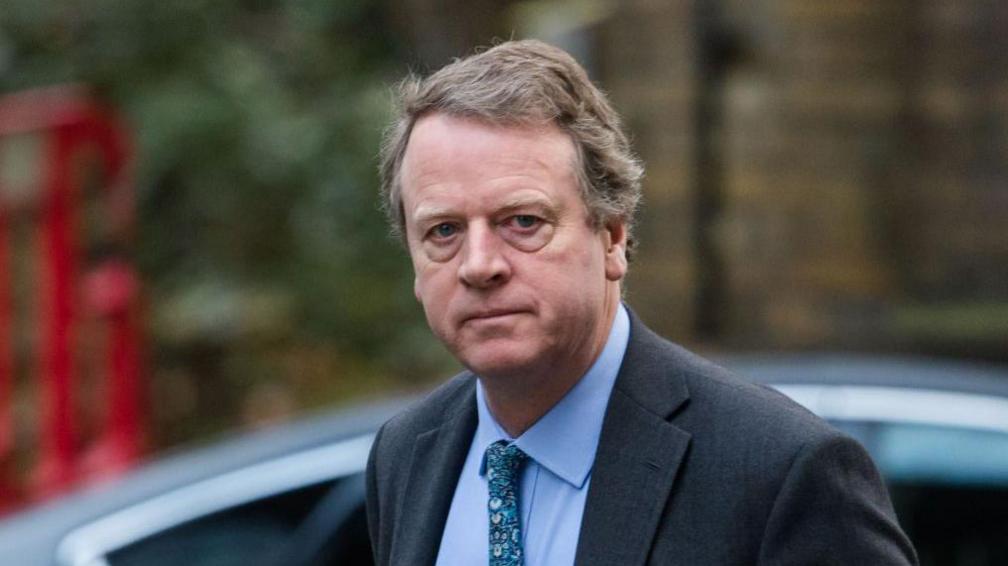
Alister Jack served as Scottish secretary from 2019 to 2024
Mr Harris said he was confident that ministers were "completely ready" and committed to the scheme following a meeting with Slater in September 2022.
When the issue of the Internal Markets Act was first raised with him, he said he had taken legal advice.
Mr Harris told the court: "In simple terms my understanding was that it should be a procedural matter and should not become politicised, and I think I was essentially told, relax, this is not going to derail us."
However he said the process "became intensely politicised", and that "during the first three or four months of 2023 the political and media coverage became increasingly intense".
When shown the government legal advice from early 2022, Mr Harris said: "Had I known of this I immediately would have made Biffa aware. It's difficult to say whether I would have been able to sign a contract.
"It's difficult to choose appropriate words - [I am] far from happy to find myself in this position."
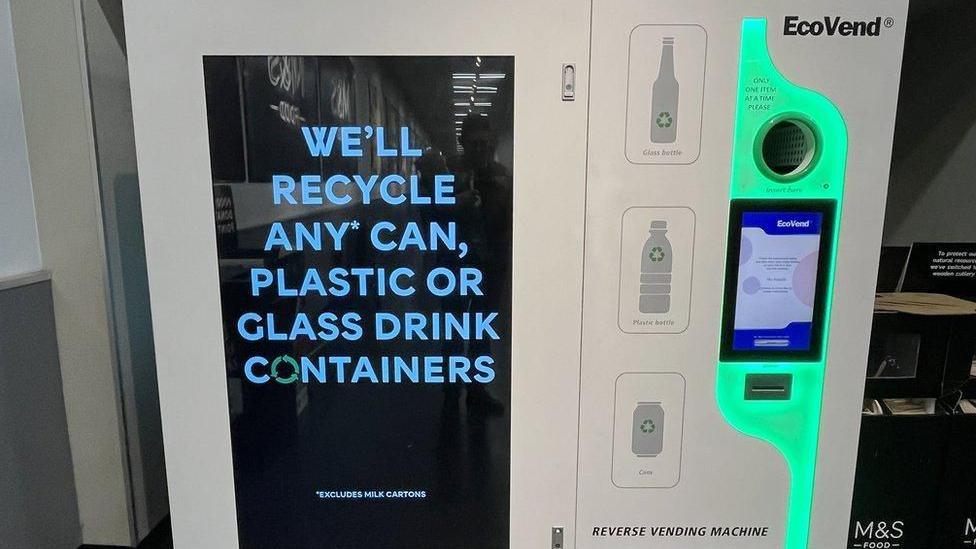
The scheme would have seen "reverse vending machines" set up to process returns
Biffa is seeking £166m in damages over the failure of the scheme, having signed a 10-year contract to deliver key services in July 2022.
The company said it too only became aware of potential problems with internal market rules in early 2023, and that it only knew for sure it had been delayed when it was announced to the public by the then first minister Humza Yousaf later that year.
By that time the firm said it had already invested more than £65m in infrastructure including vehicles, property and staff.
It has described a letter from Slater in May 2022 as being "foundational" in its decision to sign a contract, calling it "akin to a guarantee" that plans would go ahead.
Mr Harris was asked about the letter, and said he had numerous discussions with the government while negotiating the Biffa contract asking for "funding or financial guarantees".
He described the letter as a "compromise" designed to offer the firm a "clear commitment to the scheme being delivered", and an "absolute commitment that Circularity Scotland would be there to deliver it" on time.
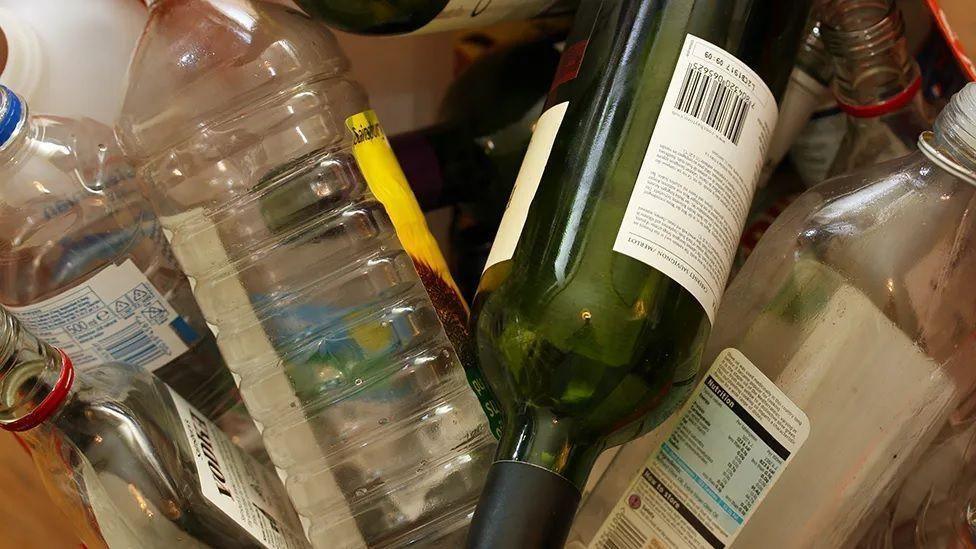
The UK government would only give backing to a scheme which excluded glass bottles
The Scottish government has sought to play down the importance of the letter, saying it did not offer special or unique assurances.
The court was shown evidence that a very similar letter had earlier been sent to an insurance company also involved in talks.
The government also argues that Biffa was aware there were risks to the deposit return scheme throughout.
Gerry Moynihan KC, representing ministers, said Biffa had negotiated its contract "with an eye on the possibility" that the scheme might be delayed.
The firm had also taken out an insurance policy with a £3m premium against any delay, although it said that only covered a "fraction" of its investment.
Mr Moynihan suggested this unusually high premium reflected the risk inherent in the plans.
Derailing scheme 'not an option'
Simon Baddeley, a manager at the company who helped negotiate the contract, said Biffa had discussed the potential for delays at Circularity Scotland, but proceeded on the assumption it would launch as planned in August 2023.
A Scottish government risk review shown to the court dating from June 2022 suggested that officials were also concerned about whether Circularity Scotland - an "extremely young business" - would be ready to manage a scheme with a turnover of £500m.
Listing the "delivery confidence" level as "amber/red", the paper described getting the system up and running as a "massively ambitious undertaking".
It said the government retained a "strong commitment" to the scheme but said the review team felt a "fully functioning and compliant" deposit return initiative "cannot be in operation for the revised delivery date in August 2023".
Mr Harris said: "There was a great number of complexities and unresolved issues to the scheme.
"But from the perspective of Circularity Scotland, our understanding was that the scheme was the law - from August 2023 our members had to comply with that law or face enforcement action.
"It was not a case that we had any option of derailing the scheme, we had to do whatever it took to make sure we had done enough to go live."